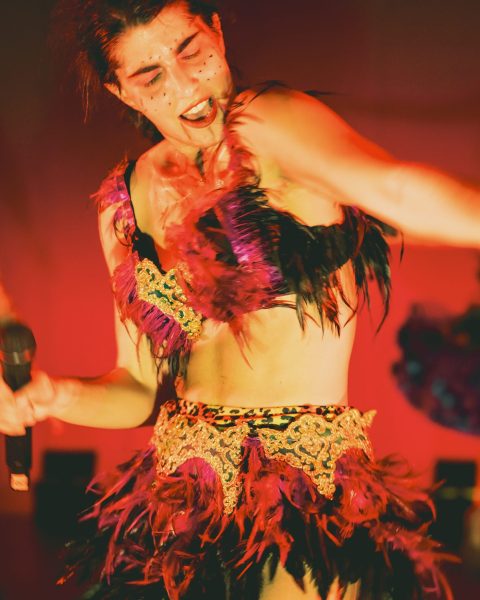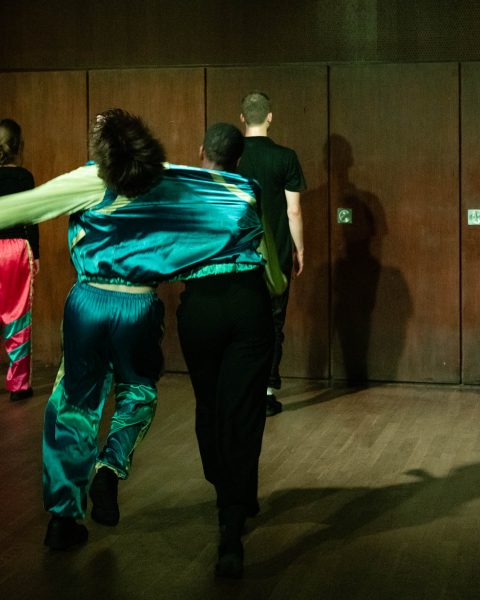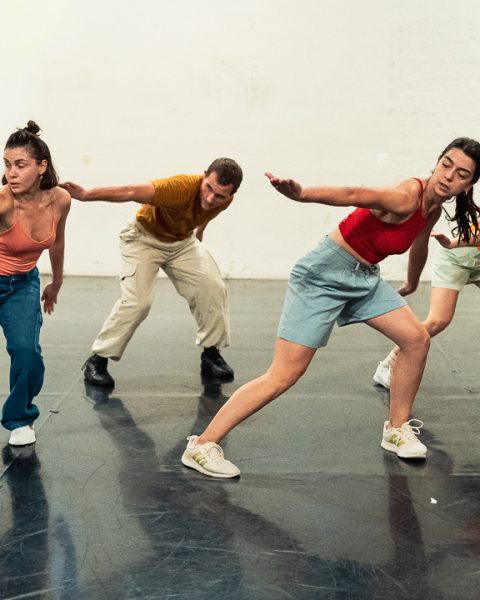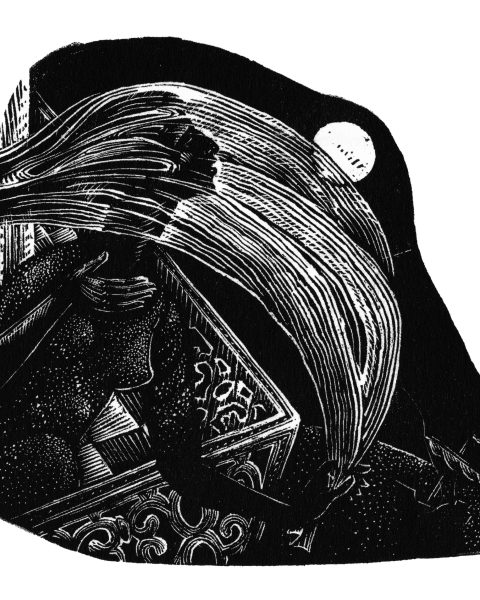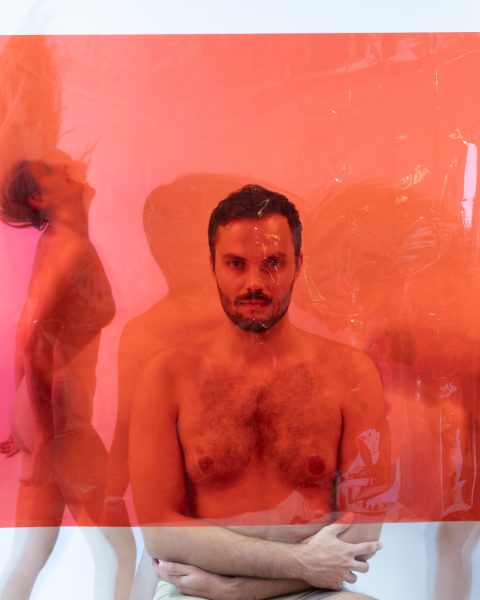Greece, the birthplace of western civilization, has been an infinite source of inspiration for artists. The philosophers, mythology, illustrious history and geographical location between east and west appeal to the imagination. Also musically there is a lot to discover. Unfortunately, over the last years, Greece’s misfortune got the most attention: natural disasters, a refugee crisis that concerns all of Europe – in both meanings of the word concern, and lastly a devastating economical crisis. The Ricciotti ensemble wants to offer some relief and joy in the form of a musical performance.
Program
Music from different styles and cultures finds a home in our program. To start with, we feature classical composers like Mozart, Glass and Spyridon Samaras. But there are also premieres by contemporary composers Evis Sammoutis and Maarten Bauer, and a Greek premiere by Calliope Tsoupaki. Greek heroes Theodorakis (known for his legendary film music) and Hadjidakis cannot be left out. Jazz music written by Greek musicians Kontrafouris and Klampanis is also added to the mix. The folk song Misirlou – known in different variations in most of the Eastern Mediterranean region – is a perfect example of the crossroads position of Greece. During the Dutch part of our tour, the finale of the seventh edition of Ricciotti’s Great Arranging Competition took place. The arrangers created compositions that incorporate the Seikilos epitaph, which is the oldest notated piece of music and was discovered near the Turkish city of Aydın. (The area was a part of Greece at the time.) The three winners received a cash prize and their pieces will be played during the Greek part of Ricciotti’s Odyssee.
Matthijs Koene
Together with this inspiring pioneer, the Ricciotti takes the pan flute back to its mythical country of origin. Matthijs Koene is considered to be one of the world’s leading pan flute players. His vision has greatly expanded the technical and expressive possibilities of the instrument. There have been written over two hundred compositions for him and his ensembles. This way Matthijs conquered a spot for the pan flute in the realm of classical music.
Repertoire
Premieres
Anemôtis
Evis Sammoutis
Ámmos
Maarten Bauer
Classical
Maestrale
Calliope Tsoupaki
Overture Rhea
Spyridon Samaras
Overture Idomeneo
Wolfgang Amadeus Mozart
The Olympian
Phillip Glass
Bacchanale
Jacques Ibert
Dance of the Amazon
Anatoly Liadov
Orpheus in the Underworld
Jacques Offenbach
Repertoire
Elaiolado
Cretan traditional
arr. Willem van Merwijk
Too Close
George Kontrafouris
arr. Peter Keijsers
Irrationality
Petros Klampanis
arr. Robbert Scherpenisse
Hellenic Hits
Various composers
arr. Peter Davis
Misirlou
Traditional
arr. Geert Rubingh
De Gepikte Vogel
Jurriaan Andriessen
Jarence
Konrad Koselleck
Finalists Ricciotti’s Great Arranging Competition:
1800 Cirkels
Vangelis
arr. Rani Kumar
Soura kai Mastoura
Anestis Delias
arr. Ida Weidner
No More Yet
The Punch Brothers
arr. Peter Davis
With Matthijs Koene (Pan flute)
Twilight Visions
Chiel Meijering
The Ballad of Mauthausen
Mikis Theodorakis
arr. Marijn van Prooijen
Pandora’s Blues
Nana Simopoulos
arr. Bram Faber
Hartino to Feggaraki
Manos Hadzidakis
arr. Annemarie Hensens
Sofar So Good
Dimitri Vassilakis
arr. Kjell Hählen
Song for life and death
Calliope Tsoupaki
arr. Hugo Bouma
Herachrimea
Oene van Geel
The Ricciotti ensemble is a Dutch symphonic street orchestra consisting of 43 young, socially committed and talented musicians with the social mission of bringing live symphonic music everywhere and to everyone. Since its founding in 1970, we actively seek out audiences; at home, at work, on holiday, on the street or in the park or a concert hall. But mainly
in all kinds of institutions such as eldery homes, asylum seekers’ centres, homeless shelters and prisons. Audiences of very different backgrounds and ages, with or without access to public life and in all parts of the Netherlands as well as abroad. The program of every performance consists of short pieces in many different genres: classical, pop, jazz and also genres of non-western music-cultures.
During a tour the orchestra plays five performances a day on average, the musicians can be ready to play in just a few minutes upon arrival (the record being 1 minute and 36 seconds). In accordance with the orchestra’s social mission, all performances are free of charge for the audience.
Youtube
Facebook
Instagram
Spotify
Theme
As the destination for this year’s tour abroad, the Ricciotti ensemble chooses Greece. One of the main pillars of the Ricciotti policy is the social mission. Greece is one of the areas of Europe where there have been many social problems in recent years. Because of its geographical location, Greece acts as the gateway to Europe and receives large numbers of refugees with all the humanitarian problems that entail. In addition, during the most recent economic crises, this same area was hit hardest. So, for the Ricciotti, reasons abound to travel to this area to try to reach as many people as possible who normally do not come into contact with live symphonic music. Apart from social reasons, Greece is also culturally and musically very interesting to travel to. Greece is the cradle of Western civilisation. That history and its mythology have inspired artists from all over the world for centuries. Composers of all times have also inspired works inspired by this culture. In addition, geography has created a folk music rooted in both Western and Eastern traditions. The programme will therefore consist of works by classical and jazz composers in which Greek mythology plays a defining role. This will be combined with typical Greek pop and folk music. Soloist Matthijs Koene is considered one of the world’s leading pan flutists. His vision and playing style have greatly enhanced the technical and expressive possibilities of the pan flute. Over two hundred compositions have since been composed for him and his ensembles. Thanks to all these efforts, Matthijs brought about the entrance of the pan flute into the world of classical music. Together with this inspiring pioneer, the Ricciotti ensemble will return the pan flute to the land of its mythical origins.

